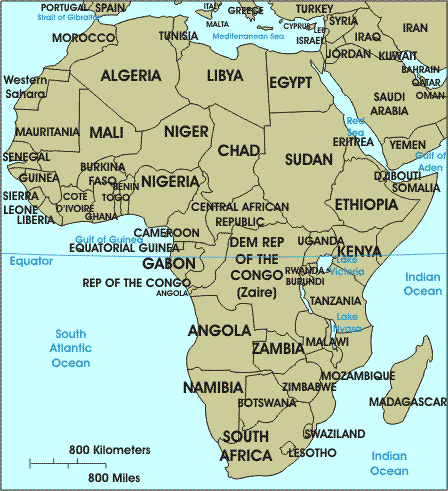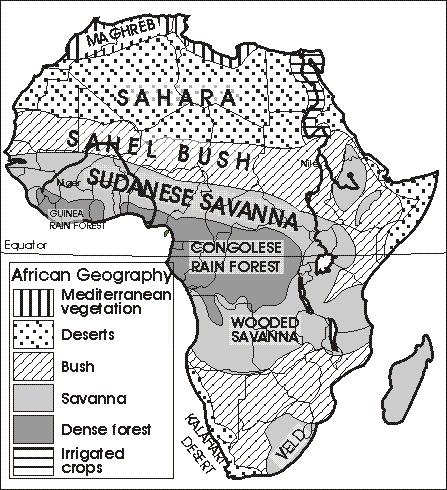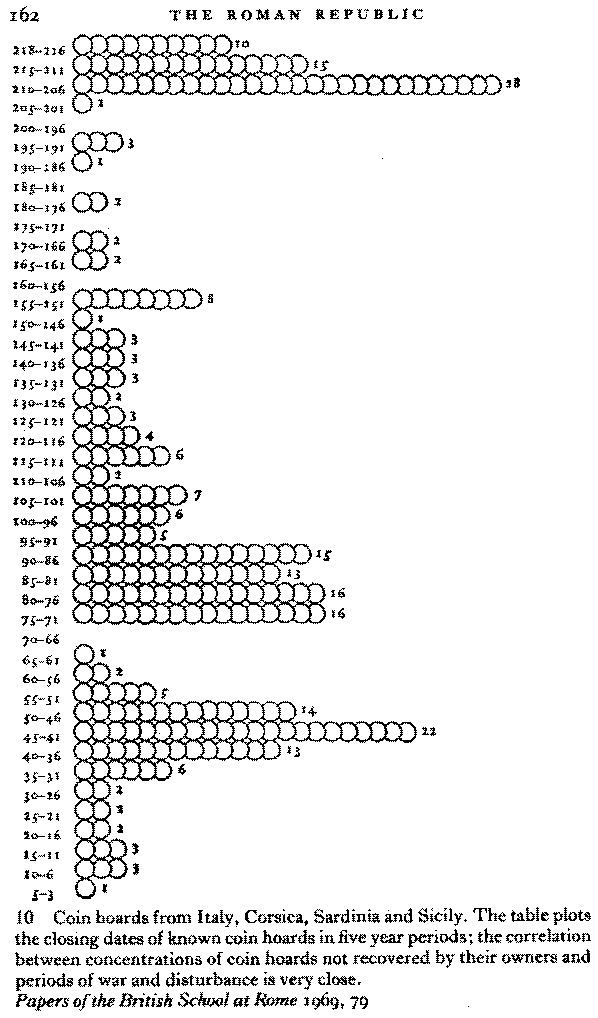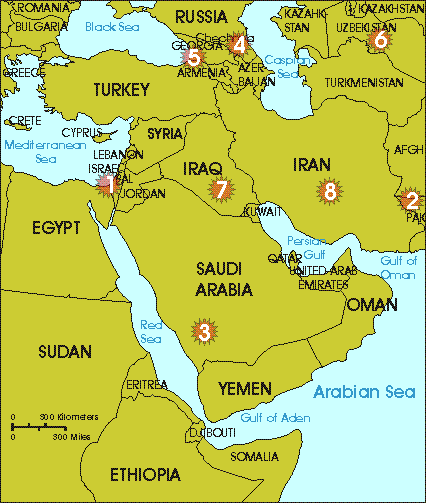Evaluation of American Crisis Wars
(Algorithmic evaluations added June 18, 2004)
Dear Mike,
The following are evaluations of American wars, with separate
evaluations for other countries participating in the wars.
In each case, the war is evaluated based on the previous criteria.
There is purposely no mention at all of cycles in the following
evaluations, to make it clear that each war is being evaluated on its
own, without reference to other wars.
The 1991 Gulf War. This war fizzled within a few weeks. The
Americans defeated the Iraqi army, but there was no crushing climax.
If this had been a crisis war, then the Americans would not have
hesitated to smash into Baghdad and destroy Saddam Hussein's
government, as well as Saddam himself. As it was, we just stopped
fighting. This evaluates to a mid-cycle war.
Code:
Evaluation: N
Historically significant war: forgotten - determines N
Genocidal violence: little - (supports N)
Politicization: high (determines N)
Resolution: Punitive (supports N)
Iraq. The Iraqi army collapsed immediately, obviously having
no will to fight. This evaluates to a mid-cycle war.
Code:
Evaluation: N
Historically significant war: Uncertain
Genocidal violence: little - (supports N)
Politicization: high (determines N)
Resolution: Punitive (supports N)
The Vietnam War This war fizzled as well. If America had
wanted to win this war, it could have bombed much more aggressively,
instead of being bound by antiwar politicians who imposed everything
from Christmas truces to personnel restrictions. Americans
"Vietnamized" the war, allowing us to back out, leaving South Vietnam
in charge of its own defense. This evaluates to a mid-cycle war.
Code:
Evaluation: N
Historically significant war: forgotten - determines N
Genocidal violence: little - (supports N)
Politicization: high (determines N)
Resolution: Unnecessary capitulation - (supports N)
Vietnam. Now look at the Vietnam War from the North Vietnamese
point of view, and you get quite a different picture. The North
Vietnames, led by Ho Chi Minh, exploded in fury as early as the 1968
Tet Offensive, and energetically pounded the Americans and South
Vietnamese, ruthless crushing the opposition. The Vietnamese War was
a crisis war for North Vietnam, but a mid-cycle war for America.
Code:
Evaluation: C
Historically significant war: significant - supports C
Genocidal violence: High - determines C
Politicization: Low - (supports C)
Resolution: Imposed reunification (supports C)
This makes the point that when you're evaluating wars, then you have
to evaluate them from the point of view of all the major
participants, since it may be a crisis war for some but not for all.
The Korean War Few people under age 50 know anything at all
about this war, and that fact alone means that this could hardly be a
crisis war. The war ended (or didn't end) in an armistice. This
evaluates to a mid-cycle war.
Code:
Evaluation: N
Historically significant war: forgotten - determines N
Genocidal violence: little - (supports N)
Politicization: high (determines N)
Resolution: Armistice - (supports N)
Korea. From the Korean point of view, the war evaluates to a
mid-cycle war as well. Not only did this war not end in any kind of
explosion, it technically didn't end at all, even though fighting
stopped because of an armistice.
Code:
Evaluation: N
Historically significant war: significant - supports C
Genocidal violence: little - (supports N)
Politicization: high - determines N
Resolution: Armistice - (supports N)
World War II. America. It took several months for
America to become fully mobilized after the Pearl Harbor attack, and
in that sense World War II got off to a slow start for America. If WW
II had been a mid-cycle war like Korea or Vietnam, America would never
have had the energy to mount the 1944 D-Day attack. America did mount
that attack, showing how massive energy for war can build up. By
1945, America's vengeful fury was in full force, with the massive
firebombing and destruction of Dresden and Tokyo, climaxing in the
use of nuclear weapons on two Japanese cities. It's worth noting
that nuclear weapons have never been used since then -- and the
reason is that no country since then has developed a nuclear
capability and then had a crisis war. This evaluates to a crisis
war.
Code:
Evaluation: C
Historically significant war: significant - supports C
Genocidal violence: high - determines C
Politicization: low - (supports C)
Resolution: "Policemen of the world" - (supports C)
England. WW II was also a crisis war for England. England
entered the war before America did, but it also got off to a slow
start, with repeated warnings to Germany, and the famous "peace in our
time" speech by Prime Minister Chamberlain. However England's efforts
also gathered energy, and even exceeded America's efforts in some
respects. By D-Day, the two countries were fully together. This
evaluates to a crisis war.
Code:
Evaluation: C
Historically significant war: significant - supports C
Genocidal violence: high - determines C
Politicization: low - (supports C)
Resolution: Joins US as policement (supports C)
Germany. Hitler mobilized quickly and pursued the war
vigorously. By 1944 it was clear he had lost, but he refused to
surrender, and fought to the bloody end. This evaluates to a crisis
war.
In evaluating whether WW II is a crisis war for Germany, we can also
look at the issue of secrecy during mobilization. This is a
secondary factor in evaluating wars, but it provides an additional
indication. If an attacking country mobilizes in secret in order to
attack with the greatest possible power and effect, this is a fairly
certain sign of a crisis war. However, it's not completely certain,
because even some mid-cycle wars are pursued with some initial
secrecy.
Code:
Evaluation: C
Historically significant war: significant - supports C
Genocidal violence: high - determines C
Politicization: low - (supports C)
Resolution: Partitioning (supports C)
Japan. Like Germany, Japan refused to surrender even when
loss was certain. And like Germany, Japan mobilized for war in
secret for a surprise attack on Pearl Harbor.
Code:
Evaluation: C
Historically significant war: significant - supports C
Genocidal violence: high - determines C
Politicization: low - (supports C)
Resolution: Gives up imperialism (supports C)
Russia. Evaluating WW II for Russia is a surprise for many
people because it's not a crisis war.
Russia suffered enormously in what they called the Great Patriotic
War, but Russia had had a brutal crisis war just a few years earlier,
in the 1910s and 1920s. They were war-weary and had little of the
genocidal energy necessary to pursue a crisis war.
Like England, Russia had made peace with Hitler, and expected "peace
in our time." But unlike England, Russia did not declare war against
Hitler until after Hitler had already begun its invasion. Russians
in Leningrad (Saint Petersburg) and Leningrad suffered massive
starvation from German encirclement, but it took until 1944 for the
Russian army to finally expel the Germans. At that point, Russia was
ready to stop fighting, but the Allies wanted Russia to keep on
fighting to help defeat Germany. Josef Stalin achieved a tremendous
political victory at the Yalta conference in 1945, where he allowed
Churchill and Roosevelt to convince him to keep on fighting, in
exchange for hegemony over Eastern Europe. Stalin also promised to
declare war against Japan, but he didn't do so until several days
after America had already dropped a nuclear weapon.
So there was no explosion of violent energy from Russia. Like many
mid-cycle wars, this one was fought defensively and politically.
That's why it's not a crisis war for Russia.
Code:
Evaluation: N
Historically significant war: significant - supports C
Genocidal violence: low to moderate - supports N
Politicization: High - determines N
Resolution: Negotiates Eastern Europe (supports N)
World War I. Germany. World War I began in the
Balkans and spread to Austria. Germany was pulled into it because of
a treaty with Austria. Russia supported its ally Serbia, and Germany
attacked France because France had a treaty with Russia.
Germany pursed the war as almost a comedy of errors. There was
constant vacillation. First they were going to encircle Paris, but
then they moved forces from the east to the western front, so they
stalemated in France. Then in the west they fought well, but they
didn't bother to fully coordinate with their Austrian allies -- in
effect allowing individual egos to take precedence over the war. At
the end, Germany capitulated because of internal political problems,
while German troops were still deep into France. [Schivelbusch,
189-90] Germany had little energy throughout this war, and so it
evaluates as a mid-cycle war.
Code:
Evaluation: N
Historically significant war: significant - supports C
Genocidal violence: low - supports N
Politicization: High - determines N
Resolution: Capitulation - punitive reparations(supports N)
England and America. England was pulled into the war
to prevent Germany from overrunning France, as had happened in 1869.
One of the most dramatic indications of how little energy there was
the 1914 Christmas truce -- four months after the war began, the
English and German troops took time off on Christmas eve to drink
beer and sing Christmas carols together. Allies' participation ended
with German capitulation, while German troops were still deep into
France. There was no explosive violence at the end, so it evaluates
as a mid-cycle war.
Code:
Evaluation: N
Historically significant war: significant - supports C
Genocidal violence: low - supports N
Politicization: High - determines N
Resolution: Punitive reparations (supports N)
Russia. Americans seldom realize that World War I was mainly
an East European and Middle Eastern war, and only touched Western
Europe incidentally (even though many lives were lost).
Russia's management of the war was disastrously wild and frenzied,
and it led to one humiliating defeat after another. The 500-year-old
tsarist government collapsed, leading to the Bolshevik (Communist)
revolution of 1917, and the Russian Orthodox Church was reduced to
near wreckage. Russia pulled out of WW I, but then succumbed to a
massive civil war, resulting in tens of millions of deaths by 1928.
When you're evaluating where a war was a crisis war for a given
nation, you sometimes need to look beyond the war itself. Russia's
participation in World War I would not, per se, evaluate to
being a crisis war. But when you look at the entire crisis
period, beginning in 1914 with World War I and ending in 1928
after the civil war, you get an extremely violent, explosive picture.
When examining the violent, genocidal energy that accompanies a
crisis war, think of this energy as a fire hose that a nation can
turn on anyone, and can also turn on itself.
A crisis period generally lasts 10 to 20 years. Sometimes it begins
and remains explosive in one region. In other cases, it begins
slowly in one region and grows explosively in the same region. In
other cases, the war starts out slowly in one region, but then
explodes into a completely different region, and even a civil war, as
happened here. All of these must be taken into account.
Code:
Evaluation: C
Historically significant war: significant - supports C
Genocidal violence: high - determines C
Politicization: Low - supports C
Resolution: Bolshevik Revolution - supports C
Turkey / Ottoman Empire. Turkey began with a war against
Russia, but had a violent civil war with its own Armenian population.
By 1922, the centuries-old Ottoman Empire had been completely
destroyed. This evaluates to a crisis war period.
Code:
Evaluation: C
Historically significant war: significant - supports C
Genocidal violence: high - determines C
Politicization: Low - supports C
Resolution: Ottoman destruction - supports C
Spanish-American War (1898). Cuba. The Cuban War of
Independence (1895-98 ) ruthlessly devastated the island, killing 10%
of the population. [Stearns, 638] This evaluates to a crisis war for
Cuba irrespective of American intervention.
Once again, we see that we have to go beyond a single war to examine
an entire crisis period.
Code:
Evaluation: C
Historically significant war: significant - supports C
Genocidal violence: high - determines C
Politicization: Low - supports C
Resolution: Devastation - supports C
America. The Cuban war aroused public sympathy for the
rebels, against Spain. When the U.S.S. Maine mysteriously blew up in
1898, America declared war against Spain and the Spanish Fleet. One of
the operations was a blockade of Cuba, something that was repeated in
1962. Spain withdrew from Cuba. [Stearns, 614] This evaluates to a
mid-cycle war.
Code:
Evaluation: N
Historically significant war: forgotten - determines N
Genocidal violence: no - supports N
Politicization: High - determines N
Resolution: Fizzles or punishes Spain - supports N
Spain. After the Maine exploded, Spain immediately agreed to
all American demands, hoping to avoid war. [Stearns, 614] When war
occurred, Spain was descredited, causing political problems.
[Stearns, 496] This evaluates to a mid-cycle war.
Code:
Evaluation: N
Historically significant war: ?
Genocidal violence: no - supports N
Politicization: High - determines N
Resolution: Punitive - supports N
Civil War (1861-65). The Civil War got off to a slow start,
as both sides continued hoping for a peaceful compromise. The war
became decisive with the Emancipation Proclamation of 1863, which
signaled a change in attitude. 50,000 men were killed or wounded in
the Battle of Gettysburg in July. In March 1864, Sherman destroyed
Atlanta and then marched to the sea, ravaging everything in his path.
This evaluates to a crisis war.
Code:
Evaluation: C
Historically significant war: significant - supports C
Genocidal violence: yes - determines C
Politicization: low - supports C
Resolution: Ends slavery - supports C
Mexican-American War (1846-48). American troops seized
California and Monterrey, and occupied Mexico City. There was a huge
antiwar movement [Almanac 251]. The war ended as Mexico ceded Texas
and other territories to the U.S., and the U.S. agreed to pay $15
million in return. [Stearns 605, 637] This evaluates to a mid-cycle
war.
Code:
Evaluation: N
Historically significant war: forgotten - determines N
Genocidal violence: no - supports N
Politicization: high - determines N
Resolution: Negotiated - supports N
Mexico. Mexico was invaded an occupied by American forces,
and dealt with several internal uprisings, including a war with Mayan
Indians in the Yucatan, culminating in a massive peasant revolt in
Queretaro. [Stearns 637] This really requires deeper information
from other sources, but based on this information it evaluates to a
crisis war.
Code:
Evaluation: C
Historically significant war: significant - supports C
Genocidal violence: yes - determines C
Politicization: low - supports C
Resolution: Negotiated - supports N
War of 1812. America declared war on England because England
was restricting American shipping to Europe during the Napoleonic
Wars. The war was indecisive and ended when the Napoleonic wars
ended. The 1814 Treaty of Ghent restored the status quo ante.
This evaluates to a mid-cycle war.
Code:
Evaluation: N
Historically significant war: forgotten - determines N
Genocidal violence: no - supports N
Politicization: high - determines N
Resolution: Negotiated - supports N
England. England was engaged in the Napoleonic crisis war.
England tried initially to avoid war by agreeing to America's
demands, but war began anyway because of a miscommunication. England
pursued the war energetically, even to capturing and burning
Washington D.C. at approximately the same time that France was
capturing and burning Moscow. Both England and France lost these
forays, in both cases because they were eventually overwhelmed by
native (American and Russian) forces. Even so, this is part of the
Napoleonic wars, and evaluates to a crisis war for England.
Code:
Evaluation: C (Napoleonic wars)
Historically significant war: significant - supports C
Genocidal violence: yes - determines C
Politicization: low - supports C
Resolution: Congress of Vienna - supports C
Revolutionary War. The colonists fired the "shot heard 'round
the world" and changed history. This evaluates to a crisis war.
Code:
Evaluation: C
Historically significant war: significant - supports C
Genocidal violence: ?
Politicization: low - supports C
Resolution: New constitutional government - supports C
England. The British should have won. They had many more
soldiers and vastly greater provisions. But even when they saw the
war coming, they did requisition provisions to fight the war. There
was a powerful antiwar movement in England opposed to the war. In
the end, British General Corwallis let himself be encircled at
Yorktown, and then surrendered with 7,000 men. England immediately
established trading relations with America. Evaluates to a mid-cycle
war.
Code:
Evaluation: N
Historically significant war: significant - supports C
Genocidal violence: no - supports N
Politicization: high - determines N
Resolution: Capitulation and acquiescence - supports N
Sources
The following sources were used in the above evaluations, as well as
the evaluations in the following messages.
[Almanac] Arthur M. Schlesinger Jr., general editor,
The Almanac of American History, Revised and Updated Edition,
Barnes & Noble Books, 1993
[Braudel] Fernand Braudel, A History of Civilizations,
1963, translated by Richard Mayne, Penguin Books, 1993.
[DK] Jeremy Black, general editor, DK Atlas of World
History, Dorling Kindersley Publishing Inc., 2001
[Stearns] Peter N. Stearns (Editor), The Encyclopedia of
World History, 6th edition, Houghton Mifflin Co., 2001
[Trevelyan] George Macaulay Trevelyan, A Shortened History
of England, Penguin Books, 1942
[Roberts] J. M. Roberts, The Penguin History of the
World, Penguin Books, 1995
[Schivelbusch] Wolfgang Schivelbusch, The Culture of
Defeat: On National Trauma, Mourning, and Recovery, 2000,
translated by Jefferson Chase, Metropolitan Books, Henry Holt and
Company LLC, 2001
Sincerely,
John
John J. Xenakis
E-mail: john@GenerationalDynamics.com
Web site: http://www.GenerationalDynamics.com





